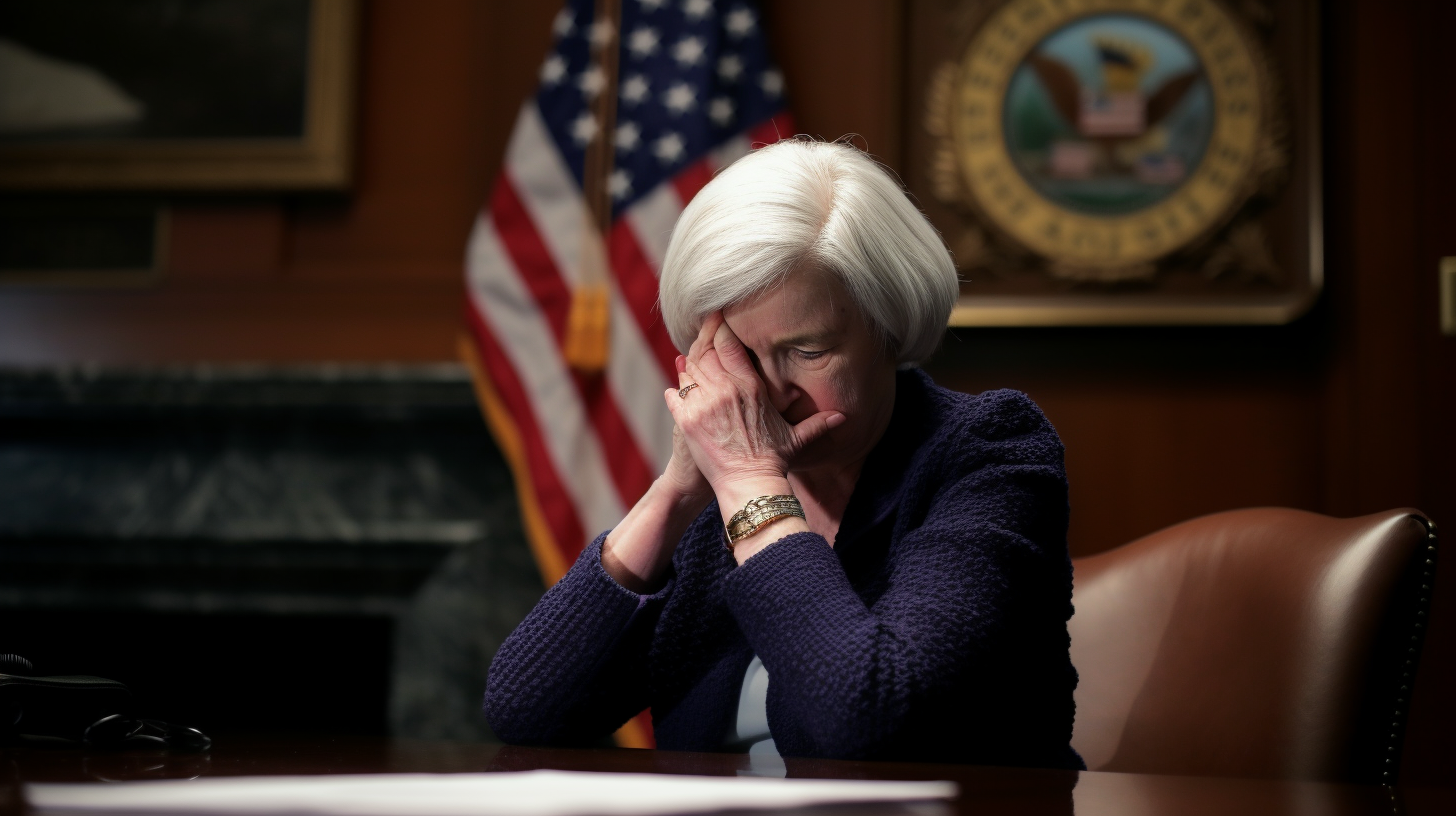Treasury Secretary Janet Yellen recently pointed to persistently high food and rent prices as a major reason why public perception of the economy remains negative, despite progress on overall inflation. With President Biden’s reelection chances closely tied to economic views, this consumer disconnect poses a threat.
In an interview with CNBC, Yellen acknowledged inflation rates have meaningfully declined from last year’s 40-year highs. However, she noted that “Americans still see increases in some important prices, including food, from where we were prior to the pandemic.”
While the administration touts top-line statistics pointing to economic strength, Yellen admitted that “this remains notable to people who go to the store and shop.”
Rent inflation also sticks out painfully to consumers, even as broader price growth cools. “Rents are rising less quickly now, but are certainly higher than they were before the pandemic,” Yellen said.
Polls Reveal Sour Public Mood Despite “Bidenomics”
This stubborn inflation in highly visible categories is clashing with the White House’s rosier messaging. The administration has dubbed the economy “Bidenomics” and trumpets metrics like robust job gains.
But almost 60% of voters disapprove of Biden’s economic leadership in the latest polling. His approval rating lags the economic data as people feel pinched by prices at the grocery store and housing costs.
Per Yellen, the disconnect boils down to prices remaining “higher than they used to be accustomed to.” She stressed the administration must now “explain to Americans what President Biden has done to improve the economy.”
Yellen expressed optimism views will shift “as inflation comes down, prices stop rising, and the labor market remains strong.” Time will tell if this turnaround happens soon enough to impact the 2024 election.
Food Prices Remain a Stinging Reminder of Inflation’s Sting
Of all consumer goods, food prices stand out as a persistent driver of inflation angst. Grocery bills grew 12% year-over-year in October, far above the 7.7% overall inflation rate. From eggs to lunch meats, few foods escape sticker shock at the store.
Russia’s invasion of Ukraine damaged vital grain supplies, resulting in huge price spikes for wheat, corn and cooking oils. Lingering supply chain dysfunction continues hampering food transport and packaging.
Restaurants also face higher food costs, which owners pass along through bigger menu price tags. Rising labor costs further squeeze restaurant margins.
In all, grocery and dining prices have become stinging daily reminders that inflation remains an economic burden. This clouds public sentiment despite falling gas prices and cheaper consumer goods.
Rents and Housing Costs Also Weigh Heavily on Consumers
Along with food, Yellen called out persistent rent inflation as a culprit of economic gloom. Annual rent growth sits around 7%, down from last year but still squeezing household budgets.
Low rental vacancy rates give landlords continued pricing power in many markets. While mortgage rates have shot higher, rents have yet to meaningfully slow for lack of alternatives.
Surging rents are especially painful due to housing’s outsize impact on living costs. One report estimated that housing accounts for 40% of a typical family’s inflation burden.
Beyond rent, housing costs like property taxes, homeowner insurance, and home services are also outpacing overall inflation. And higher mortgage rates make buying a home even less affordable.
These housing stresses help explain why such a large majority of Americans still rate current economic conditions as poor. With shelter eating up more paychecks, consumers feel deprived despite broader progress.
All Eyes on Food and Housing Costs as Midterms Approach
Yellen made clear that stubborn inflation in categories like food and rent is the administration’s biggest obstacle to touting economic gains. As President Biden gears up for a likely 2024 reelection bid, perceptions of the economy will carry substantial weight.
Democrats are hoping the public mood brightens as the impact of cooling prices materializes. But that remains uncertain with high-visibility costs still stinging consumers.
If relief arrives soon across grocery aisles and rent rolls, voters may yet reward President Biden and Democrats for delivering an overdue inflation reprieve. But the clock is ticking with the 2024 campaign cycle fast approaching.
For now, Biden’s political fate remains tied to the cost of bread and monthly housing bills. If lidding inflation can make such necessities feel affordable again, the president may stand to benefit.
